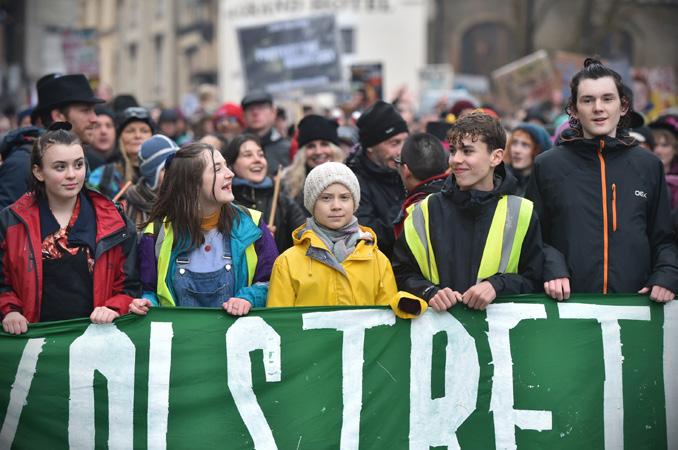
4 minute read
Nature is healing. We are the virus.
John Elkington, the godfather of corporate sustainability, explains why this pandemic may herald a greener future.
It’s fair to say that over the past few months we’ve all become very aware of the impact that so-called “black swan” events can have on our workplaces, the global economy and the way we live our lives. Coined by Nassim Nicholas Taleb in 2007 to denote events that can’t realistically be foreseen (and the outsize impact they have), it’s a term that almost seems to have been designed for the coronavirus pandemic.
Advertisement
The question, however, is what happens next. Could this miserable virus change our priorities and bring about new ways of viewing the world?
Yes, absolutely. We are on the cusp of a number of “green swan” moments. Technologies and corporate objectives that exist only in embryonic form today look set to change the way the global economy works forever. And these swans are green for a reason: the shift we are heading for will move us into a world that is far more in tune with environmental concerns than it has ever been before.

If black swan events make life exponentially worse, then green swans can make life exponentially better. If we get it right, we will enter an era of regenerative capitalism built on reusing, rebuilding and renewing.
It should leave firms with their social licence to operate very much in place and an economic model that can deliver material improvements in people’s lives.
TOTAL RECALL
Ever since I proposed the “triple bottom line” more than a quarter of a century ago – encompassing not just the economic but also the social and environmental performance of a firm – I’ve sat in boardrooms and seen huge progress among big corporations. But it hasn’t gone far enough. That’s one reason why I issued a “product recall” on the term two years ago.
Whether or not you agree with the idea of a “climate emergency”, there’s no question that the issue has been put at the centre of the global conversation in a way it hasn’t been before, and the public is more sceptical than ever. Firms can no longer get away with “greenwashing” – employing the language of environmentalism to hide all manner of sins.

GRETA THUNBERG DECLARED “THE WORLD IS ON FIRE” DURING A PROTEST IN BRISTOL IN FEBRUARY
My Green Consumer Guide, published more than 30 years ago, has been wilfully, delusionally (and occasionally accidentally) misquoted by thousands of firms around the globe, who have been – and this is a charitable estimation – overenthusiastic about their environmental credentials.
That won’t do anymore. The CEO class has finally woken up to the fact that a combination of high-profile environmental disasters and a growing number of environmentally conscious employees – especially at the younger end of the age spectrum – mean that if they don’t take this seriously, they are in real trouble.
I think back to Japan in the 1980s, when just about every major firm lost a CEO simply because they couldn’t get to grip with new technologies and innovations. We are potentially on the cusp of that here, too. CEOs who don’t understand the green revolution happening all around them and the impact it will have on consumer trends and government policy must pay attention. We’ve seen the speed with which private firms have been co-opted into the effort to build ventilators, hand sanitiser and other vital medical items. Could it be that in 10 or 15 years’ time we see a similar mobilisation of industry on the back of a climate emergency?
TIME FOR A LITTLE HONESTY
And what does that mean for those on the front line of communications? Well, as I’ve alluded to, the most important thing is authenticity. Don’t claim credit for work you haven’t done. Years of greenwashing means that the public knows what to look out for. Firms should only put their head above the parapet once they’ve got their house in order.
Just as vital is accepting that “going green” is a journey. Some firms are further along that road than others, and even I, a sustainability warrior, accept that no business is perfect. Being honest about where you need to do more, the steps you as a company will take to get there and your overall progress will win you friends in both the investor class and among a public that is increasingly clued-up about the need for a transition to a more regenerative economic model.
And on a more concrete level, if people can be judged by their friends, so can firms. Communicators need to carefully scrutinise their trade bodies and the associations they belong to. Do they hold the same values as you? Do they share your desire to move towards a greener economy? If not, you’re better off without them.
Coronavirus has been a horrendous wake-up call to how local phenomena can become global catastrophes. With global leadership weaker than ever, companies and business leaders have an outsize role to play in building the green swans of the future.
John Elkington is a leading authority on corporate sustainability. His 20th book, Green Swans: The coming boom in regenerative capitalism, is out now (Fast Company Press, £20.29)










